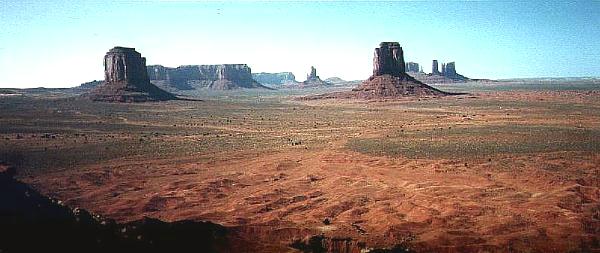
Future of ecology (continued)
Lecture
graphics
Keddy (1992, J. Veg. Sci. 3:157-164) suggested the following
goals for community ecology:
- Development of "assembly rules" (sensu Diamond 1975,
Assembly of species communities, pp. 342-444 in Ecology and
Evolution of Communities)
- Diamond has been criticized for the methods he proposed to create
assembly
rules; although his proposed methods were flawed, the goals he
proposed were
fine
- Objective of assembly rules:
- Given (1) species pool and (2) an environment, can we
predict the abundance of organisms actually found in
that environment?
- Development of "response rules"
- Objective of response rules:
- Given (1) a specified assemblage of spp., (2) total
species pool, and (3) a specified disturbance or treatment, can
we
predict the composition of a future community?
- Again, we need knowledge of key life-history traits in
the species pool, and the way in which spp. interact
w/
basic types of disturbances
- This requires a combination of:
- description (to delineate spp. pool, to
define initial states of systems, and to
describe naturally-occurring states resulting
from disturbances),
- comparison (of attributes of species -->
necessary ecological info on spp. in the
pool), and
- experimentation (to determine which traits
provide the capacity to predict responses to
different kinds of disturbances)
- Which systems should be studied?
- Different groups of organisms differ in their importance in
the functioning of ecosystems
- Groups also differ in abundance in the biosphere
- Let's return to studies of interactions, where we began the
semester:
- Tansley's (1914) Presidential Address to the British
Ecological Society dealt w/ contemporary issues in
studying competition
- focus on release experiments and the virtues of
generality
- Clements et al. (1929, Plant Competition: An Analysis of
Community Functions)
- included thorough review of competition concepts back
to Malthus
- extensive series of transplant experiments for studying
competition
- studies designed to assess competition for different
limited resources (light, water, nutrients)
- summary of consequences of competition for community
organization
- So, we had a clear statement of conceptual approaches for plant
ecology research over 80 yr ago, followed by a synthesis over 65 yr
ago
- What does this tell us about the progress of ecology as a
science?
- Why did it take so long for field experiments to be
popularly accepted by plant ecologists?
- Why did (& does) plant ecology continue to be dominated by
description?
- Several hypotheses:
- Human tendency to seek dichotomies
- for ecology:
- does competition or predation structure
communities?
- holistic vs. reductionist approaches
- Scientists are rewarded for solving answerable questions,
not important ones
- Focus on inappropriate study media
- Obstacles to communication
- Weiner (1995) provides positive feedback for those of us who are
critical of, and cynical about, the progress of ecology ("Ecology
should be taught with a high degree of skepticism and cynicism")
- Nontheless, there are good reasons to be optimistic about the
future of ecology
- the world needs general, predictive ecological theory for
conservation and sustained use of the natural resources
- we should be intellectually and ethically satisfied by
pursuing ecological research
- It appears that most of the obstacles to ecological research have
more to do w/ psychology of scientists than w/ ecological systems
Previous
lecture
